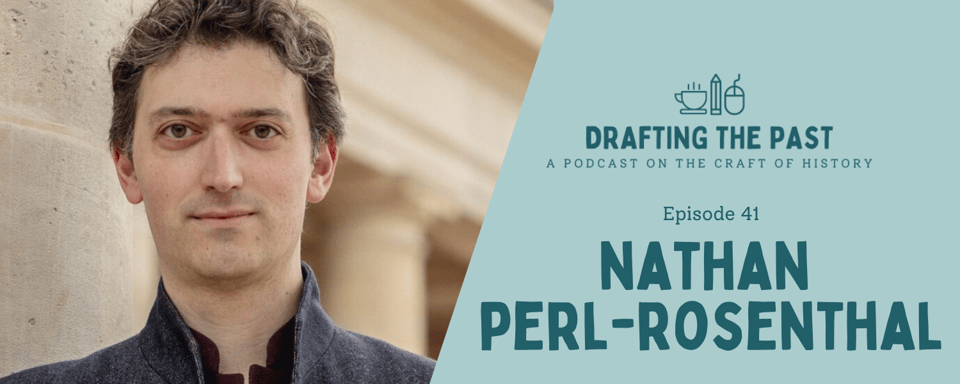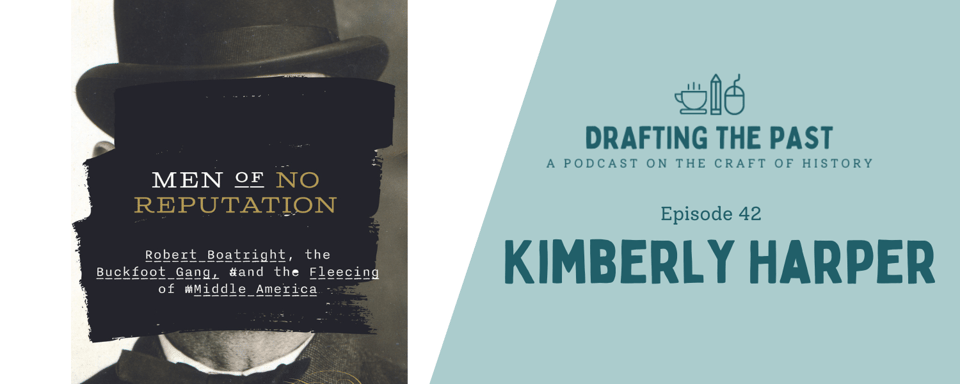Advice on pitching Drafting the Past

The Drafting the Past newsletter is free to all. If you would like to help keep the podcast and newsletter going, you can support Drafting the Past on Patreon.

Note from 11/13/25: An updated version of these guidelines now lives here.
Perhaps naively, when I first launched the Drafting the Past podcast, it didn't occur to me that people might reach out and ask to be on the show. I was mostly worried that no one would say yes to my invitations, so you can imagine my surprise when writers soon began emailing me.
And emailing. And emailing.
I love to hear from potential authors who want to be interviewed by me (and I'm still a little surprised and flattered that anyone does!). Like most people in the modern world, though, I'm under a deluge of daily emails, and pitches can easily slip off my radar. To improve the odds of you getting a yes from me (and maybe other podcast hosts), I've put together some casual advice on pitching the show. These, of course, reflect my personal preferences, as well as things I've seen work and not work over many, many pitch emails. (Here I will pause for a special shout out to Sarah McNamara, who wrote the best pitch email I have ever seen, which resulted in this excellent episode.) That said, I suspect the principles hold true for many other podcasts. I will come back to this post to update this advice over time, so feel free to share and bookmark it. Updated 11/13/25: I put an updated version over here, so you can bookmark that one for future use.
It's really not about you. The rest of these pieces of advice are in no particular order, but I want to emphasize this one. If I turn down your pitch (or, more likely and shamefully, never respond because the baby started crying the second I read your email and I forgot all about it), it likely has basically nothing to do with you or the quality of your work. Pitches don't work out for a lot of reasons. Sometimes the book isn't a great fit (see tip below). Often I get pitches inspired by a recent episode ("Hey, you just did this episode with the author of a book about the history of beer, maybe you want to interview me about my slightly different history of beer!"), but this isn't a great strategy, because I try to mix up the book subjects. Similarly, maybe I'm trying for a mix of press size/book subject/author background that you don't know about. Maybe the pitch just didn't immediately grab me (see crying baby, above) and was lost in the email void. These are all me problems. Please don't take them personally.
Listen to the podcast you're pitching. At the very least, do some cursory research. If you've listened to any episode of DTP for example, you know that it's a show about writing history, not the subjects of the books themselves. Pitches that say "I'd like to talk to you about [subject of my new book]" and nothing else automatically get ignored. I also get a lot of pitches for historical fiction, but I rarely do interviews with fiction writers (there are only a couple in the archive), and I mostly want fiction writers who trained in academic history before they turned to fiction. There are many awesome podcasts about writing fiction out there! That's not the focus of this one. (Also, not that you asked for my advice, but this one thing is the reason I'm skeptical of freelance book publicists. I get A LOT of pitches from freelance publicists who don't seem to know anything about the show, and I always feel sad that I'm not sure writers are getting their money's worth. That's just my view, though.)
Tell me what interesting perspective you bring to the conversation. Particularly if I don't already know you or your work, telling me what you have to say about writing that listeners might not have heard before is a great way to grab my attention. Maybe you had to work with an unusual source base, or you wrote the whole thing in another language before translating it into English, or you work with some obscure piece of software that you think other historians should try. Whatever it is, telling me why our conversation about writing will be interesting (and giving me clues about what questions I could ask you) is so helpful. I'm always trying to think about what listeners will get out of our conversation, so it's great to show that you are thinking about this, too.
Please do tell me about your work. Even though we'll be talking about writing (and I will do some research on you before I say yes), it helps if you give me a little summary of your work right in the email. The less legwork I have to do to get to "yes," the better for you.
Include an anecdote. If something interesting happened during your writing process (your computer lost an early draft but the rewrite was even better, say, or you met a relative of your subject on a playground on the other side of the country), tell me! The more I know that this interview will have interesting tidbits for readers, the better.
Tell me how I can get a copy of your book. I like to read at least your most recent work before our interview, so it's helpful if you can put me in contact with the press to facilitate that. A physical or digital copy is totally fine with me. If you don't know the answer to this, that's fine, too, just let me know so I can plan ahead!
It's OK to follow up. You've probably gathered from this that I often lose track of emails, so it never bothers me if you ping me again to make sure I saw your email. Again, though, if I fail to respond or say no, it really is nothing personal. Feel free to complain about me to your friends.
Please don't pitch me on social media. This used to happen a lot and it was great, but between the mess of Twitter and my own scattered focus, I can't handle pitches in too many places. Shoot me an email with your pitch instead (if we're social media friends, feel free to say so). Likewise, if we talk in person, it helps if you send me a follow-up email to remind me about the conversation.
I genuinely appreciate every single person who takes the time to seek out the show and suggest themselves (or someone else!) as a guest. I feel a great deal of embarrassment that I can't respond to everyone, but sometimes I'm hanging on by a thread, friends. I appreciate your understanding.
Two New Episodes: Nathan Perl-Rosenthal and Kimberly Harper
In case you missed them since the last newsletter, Episodes 41 and 42 came out, featuring Nathan Perl-Rosenthal and Kimberly Harper. In many ways, these two authors could not be more different, but they both had incredibly helpful things to say about the writing process. I think you'll enjoy both of them.


Add a comment: